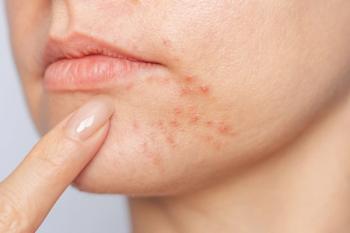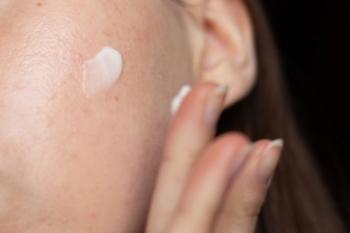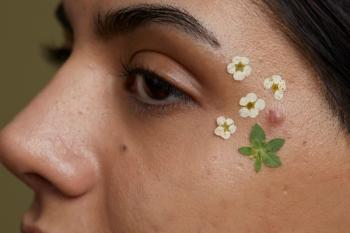
Calming inflammation in common skin conditions
Publishing new research findings certainly has its benefits, but how physicians use that information and their personal experience in clinical practice can prove to be more insightful. In this article, we feature three physicians who participated in the rapid-fire Q&A “60 Tips in 60 Minutes” from the Winter Clinical Dermatology Conference held in January in Hawaii.
Publishing new research findings certainly has its benefits, but how physicians use that information and their personal experience in clinical practice can prove to be more insightful. In this article, we feature three physicians who participated in the rapid-fire Q&A “60 Tips in 60 Minutes” from the Winter Clinical Dermatology Conference held in January in Hawaii.
Discuss diet with patients
“Be proactive in discussing diet with patients," says Gary Goldenberg, M.D., a medical and cosmetic dermatologist in private practice in New York City. Consumer health news often suggests that diet can cause, or exacerbate existing skin conditions including eczema, psoriasis, acne and rosacea. But the scientific data to support these claims is “soft,” he says.
Educate patients about systemic associations
Because psoriasis is associated with psoriatic arthritis, cardiovascular and heart disease, metabolic disorders, insulin resistance, depression and other internal manifestations, Dr. Goldenberg counsels patients with psoriasis to notify their primary care physician if they notice signs of these conditions.
All levels of acne severity can scar
"We worry a lot about scarring in patients who have nodulocystic acne," said Linda Stein Gold, M.D., of Henry Ford Health System. "But studies have shown that all patients with acne, even those with milder or more superficial acne, can develop scarring. It's important to think about being aggressive in calming down the inflammation with our acne patients."
Topical agents for scar treatment
Few clinical trials have investigated the safety and effectiveness of topical treatments for scars, but a newly published study shows there is promise in this area, Dr. Gold said. A study published in the April issue of the American Journal of Clinical Dermatology showed that the combination treatment of topical 0.3%/benzoyl peroxide 2.5% gel, prevented and reduced atrophic scar formation. Scar count decreased over 24 weeks.
Topical agents cannot reduce sebum
Despite marketing claims, using oil-free moisturizers or other topical products cannot diminish sebum production. Not even topical retinoids can reduce sebum production, Dr. Gold said.
Decrease dosage for serious isotretinoin-induced flares
Some patients just starting out on isotretinoin therapy develop pseudo-acne fulminans eruptions on the face, chest and back within two weeks of beginning treatment. At this point, most physicians increase the dose, but Hilary Baldwin, M.D., medical director of the Acne Treatment and Research Center, Morristown, New Jersey, suggests cutting the dose in half or stopping treatment altogether. "The answer is not to increase the dose, which is what many dermatologists do. Instead, cut the dose 50% or stop it altogether. Then treat the patient with prednisone 1 mg/kg per day until the reaction stops, and very gradually decrease the prednisone and reintroduce isotretinoin, starting at around 10 mg daily," she said.
History of pseudotumor cerebri (PTC)
PTC is a rare side effect of isotretinoin, but having a personal history of PTC may not preclude isotretinoin treatment. "In the past, when patients had a history of PTC, we've been afraid to use isotretinoin for fear of causing it again," Dr. Baldwin said. A case series published in May 2016 in JAMA showed that with doses starting at 10 mg daily, patients successfully completed their course of isotretinoin without recurrence of PTC.
Applying topical acne medications to an unwashed face
When it comes down to a choice between compliance and nonadherence, applying topical acne medications to an unwashed face may be the only feasible options, Dr. Baldwin says. Busy schedules may not allow for face washing before applying topicals, but then, applying topicals to an unwashed face may reduce irritation that sometimes occurs when applied to a wet, recently washed face.
- Dermatology Times staff report with John Jesitus
DISCLOSURES
Dr. Stein Gold has been an advisor, consultant or investigator for Galderma, Allergan, Valeant, Dermira, Novance and Foamix. Drs. Baldwin and Goldenberg report no relevant financial interests.
REFERENCE
"60 Tips in 60 Minutes." Linda Stein Gold, M.D., Hilary Baldwin, M.D., Gary Goldenberg, M.D. Winter Clinical Dermatology Conference – Hawaii. January 12-17, 2018.
Newsletter
Like what you’re reading? Subscribe to Dermatology Times for weekly updates on therapies, innovations, and real-world practice tips.











